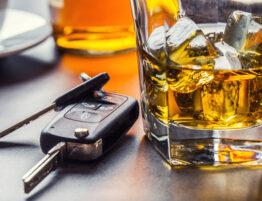
If you’ve ever been on a long road trip or driven home from work after a long day, you may have experienced feeling like you are on autopilot. One second, you’re leaving the office, and the next, you’re turning into your neighborhood. You have no recollection of how you got from one place to another, meaning you drove a significant amount of time without fully paying attention to where you were going.
In this case, you’ve experienced what is known as highway hypnosis, or White Line Fever, and you’re not the only one who struggles with accidentally switching to autopilot when you’re driving. Many people do this subconsciously. While it isn’t intentional, it still is very dangerous to your safety and the safety of others on the road.
What Is Highway Hypnosis?
Highway hypnosis is defined as a trance-like mental state where a person can drive a motor vehicle, respond to external events, and follow the rules of the road without having consciously made these decisions and judgments. This happens when an environment and navigation are unchanging. Your body is put in a hypnotic state and causes you to operate on autopilot.
While drivers will often arrive at their destination safely and without causing any harm, there are times when those in autopilot won’t fully be aware of what they’re doing until the act is performed. The autopilot can last different periods depending on the individual. For some, it lasts for a few minutes and others a couple of hours.
Symptoms of Highway Hypnosis and White Line Fever
When our brains practice an action repeatedly, they stop relying on conscious decisions and instead make quick automatic responses. Highway hypnosis happens more often when the drive is long or we’re tired. However, people experience highway hypnosis even when they’re not tired. Some symptoms that you can experience during highway hypnosis are:
- Feeling dazed;
- Loss of concentration;
- Slow reaction time;
- Possibility of drifting into the other lane;
- Wandering thoughts and daydreaming; and
- Missing exits/traveling.
Driving may not feel like a task, but your brain will start to do it automatically when it turns into a daily action that becomes second nature. There are ways to combat the feeling and can keep you and those on the road safe.
Ways to Help Avoid Highway Hypnosis
Most of the time, drivers end up driving correctly and aren’t breaking the rules. However, their brain is still making quick decisions without being fully aware of what they are doing. This can lead to dangerous situations and even accidents. It’s essential to try and take action against these feelings. Some of the ways to combat highway hypnosis include:
- Get the proper amount of sleep and rest;
- Avoid driving too early or late at night;
- Stay upright and in correct posture when driving;
- Take breaks and stretch your muscles if you need to rest;
- Roll the windows down;
- Listen to upbeat music; and
- Switch drivers during long road trips if possible.
Actively following these tips can significantly improve your chances of not letting your brain take over and switch to autopilot. Another thing to remember is that other people may be unaware that they’re in highway hypnosis and cause an accident. Even if it’s only for a second, distracted driving causes major injuries.
Contact Marsalisi Law for Your Florida Personal Injury Claim
Driving can feel exhausting after a long day. However, when you are on the road, you are responsible to yourself and others around you to stay safe. When someone is driving distracted and causes an accident that results in you suffering from severe injuries, you’re entitled to compensation for the damages and financial losses you incur.
Attorney Frank P. Marsalisi is ready to work with you to receive the best possible outcome for your case. At Marsalisi Law, we understand that the financial responsibilities of an accident can put pressure on you and your loved ones. We will work to help you hold the person responsible for your injuries accountable for their careless behavior.
For a free consultation, call (727) 800-5052 or complete our contact form.










